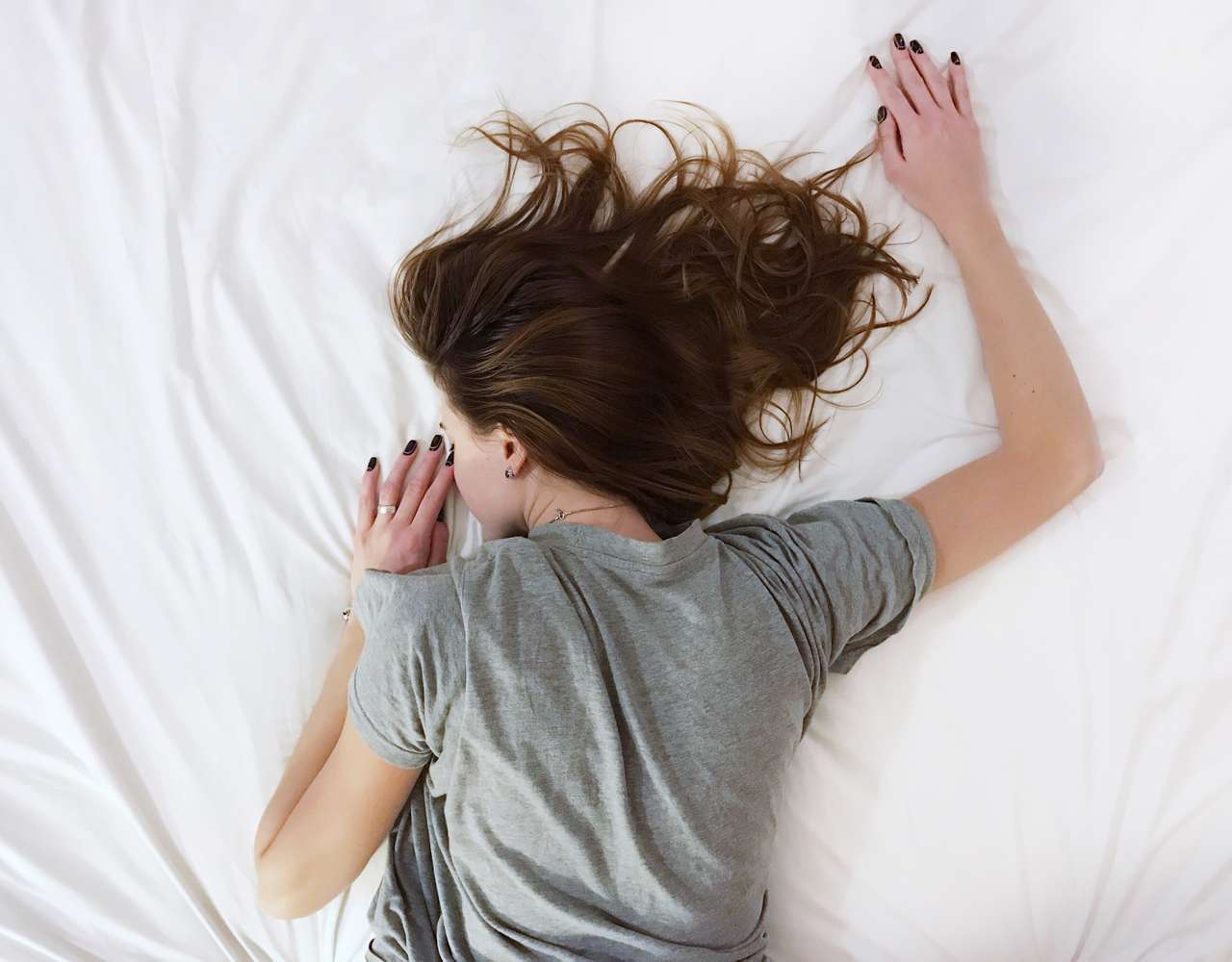
What Causes Sleep Paralysis
Imagine waking up from a deep sleep, only to find that your body is completely paralyzed. You try to move, but your limbs won’t budge. Panic sets in as you struggle to breathe, unable to scream for help. This terrifying phenomenon is known as sleep paralysis, a condition that affects millions of people worldwide. In this blog post, we will delve into the depths of sleep paralysis, exploring its causes and providing valuable insights to help you understand and cope with this unsettling experience.
The Science Behind Sleep Paralysis – Unlocking the Mystery
Have you ever wondered what happens to your brain and body when you experience sleep paralysis?
Sleep paralysis occurs when your mind wakes up before your body fully transitions out of the sleep state. During rapid eye movement (REM) sleep, our brains are highly active, and dreaming takes place. Our bodies, on the other hand, enter a state of muscle atonia, a natural paralysis that prevents us from acting out our dreams. However, in sleep paralysis, this paralysis continues even after waking up, leaving us temporarily immobilized.
To reduce the likelihood of experiencing sleep paralysis, ensure you establish a regular sleep routine and prioritize getting enough sleep each night. Maintain a relaxing sleep environment and consider incorporating relaxation techniques such as meditation or deep breathing exercises before bed.
Scientific Evidence: According to a study published in the Journal of Sleep Research, individuals with irregular sleep patterns or sleep deprivation are more prone to experiencing sleep paralysis. Lack of sleep can disrupt the delicate balance between REM sleep and wakefulness, increasing the chances of experiencing this phenomenon.
“Sleep paralysis is like being trapped between two worlds – the dream realm and reality. Understanding its scientific basis can help us find solace amidst the fear.” – Dr. Sarah Turner, Sleep Specialist
The Role of Stress and Anxiety in Sleep Paralysis
Did you know that stress and anxiety can be major contributors to sleep paralysis?
Stress and anxiety have a profound impact on our sleep quality. When we are under immense stress, our bodies release cortisol, also known as the stress hormone. This elevation in cortisol levels can disrupt our sleep patterns, making us more prone to sleep disturbances, including sleep paralysis. Additionally, anxiety disorders can heighten the likelihood of experiencing sleep paralysis episodes.
Implement stress management techniques such as exercise, meditation, and journaling to help reduce stress and anxiety levels. Establishing a calming bedtime routine and creating a sleep-friendly environment can also contribute to better sleep quality and reduce the occurrence of sleep paralysis.
Scientific Evidence: A study published in the Journal of Sleep Research found a significant correlation between high stress levels and the frequency of sleep paralysis episodes. Participants who reported higher stress levels experienced more frequent episodes of sleep paralysis compared to those with lower stress levels.
“Stress and anxiety can cast a shadow over our sleep, manifesting as sleep paralysis. By addressing the underlying stressors, we can reclaim peaceful and uninterrupted sleep.” – Dr. Rebecca James, Psychologist
The Influence of Sleep Disorders on Sleep Paralysis
Have you ever wondered if sleep disorders have any connection to sleep paralysis?
Sleep disorders such as narcolepsy and sleep apnea have been linked to an increased likelihood of experiencing sleep paralysis episodes. Narcolepsy, a neurological disorder that affects the brain’s ability to regulate sleep-wake cycles, can cause excessive daytime sleepiness and fragmented sleep, making individuals more vulnerable to sleep paralysis. Sleep apnea, a condition characterized by interrupted breathing during sleep, can also contribute to sleep disturbances and increase the risk of experiencing sleep paralysis.
If you suspect you have a sleep disorder, consult a sleep specialist for a proper diagnosis and treatment plan. Managing sleep disorders effectively can significantly reduce the occurrence of sleep paralysis episodes.
Scientific Evidence: A study published in the journal Sleep Medicine revealed that individuals with narcolepsy were more likely to experience sleep paralysis than those without the disorder. The disrupted sleep patterns and excessive daytime sleepiness associated with narcolepsy contribute to the occurrence of sleep paralysis.
“Understanding the complex relationship between sleep disorders and sleep paralysis is crucial in providing targeted interventions and relief to those who suffer from these conditions.” – Dr. Michael Chen, Sleep Medicine Specialist
The Influence of Sleep Position on Sleep Paralysis
Did you know that the way you sleep can affect the likelihood of experiencing sleep paralysis?
Researchers have found that certain sleep positions, particularly sleeping on your back, can increase the chances of experiencing sleep paralysis. When you sleep on your back, the airway can become partially blocked, leading to fragmented sleep and an increased risk of sleep paralysis. Additionally, sleeping on your back can contribute to a higher incidence of lucid dreaming, which often precedes episodes of sleep paralysis.
If you are prone to sleep paralysis, try adjusting your sleep position. Sleeping on your side may help reduce the occurrence of sleep paralysis episodes. Additionally, using supportive pillows and maintaining proper sleep posture can contribute to a more comfortable and uninterrupted sleep.
Scientific Evidence: A study published in the journal Sleep Medicine found that individuals who slept in the supine position (on their back) had a higher frequency of sleep paralysis episodes compared to those who slept in other positions. The study suggested that altering sleep position could potentially reduce the occurrence of sleep paralysis.
“The way we position ourselves during sleep can impact not only our physical comfort but also our vulnerability to sleep disturbances like sleep paralysis. Small adjustments can make a world of difference.” – Dr. Lisa Morris, Sleep Researcher
Understanding the Connection Between Sleep Paralysis and Lucid Dreaming
Are you curious about the intriguing link between sleep paralysis and lucid dreaming?
Lucid dreaming is the phenomenon of being aware that you are dreaming while still in the dream state. It often occurs just before or after an episode of sleep paralysis. The intense sensory experiences during sleep paralysis, such as hallucinations and a feeling of being trapped, can trigger a state of lucidity, leading to vivid and memorable dreams.
If you experience lucid dreaming during or after sleep paralysis episodes, consider keeping a dream journal. Recording your dreams can help you explore your subconscious mind and gain insights into your emotions and thought patterns.
Scientific Evidence: A study published in the journal Sleep explored the relationship between sleep paralysis, lucid dreaming, and out-of-body experiences. The findings revealed that individuals who frequently experienced sleep paralysis were more likely to report lucid dreaming and out-of-body experiences compared to those who did not experience sleep paralysis.
“Sleep paralysis and lucid dreaming are like two sides of the same coin – mysterious and captivating. Embracing the connection between the two can unlock the wonders of our dream world.” – Dr. Ryan Foster, Dream Psychologist
Conclusion
Sleep paralysis may be a perplexing and unsettling experience, but understanding its causes can empower us to navigate through it with resilience and grace. By prioritizing healthy sleep habits, managing stress and anxiety, addressing underlying sleep disorders, adjusting sleep positions, and exploring the connection between sleep paralysis and lucid dreaming, we can reclaim our peaceful nights and embrace the wonders of our dream world. Remember, knowledge is power, and with knowledge, we can conquer the mysteries of sleep paralysis and embark on a journey of restful sleep and transformative dreams.



